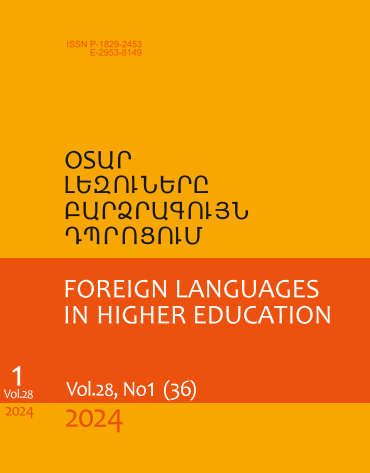Linguistic characteristics of digital diplomacy
DOI:
https://doi.org/10.46991/FLHE/2024.28.1.115Keywords:
diplomacy, diplomatic discourse, digital diplomacy, twiplomacy, communication strategies, social networksAbstract
The purpose of this article is to consider the strategies of digital diplomacy as a new means of communication, the linguistic features of communication platforms, as well as the functional features of discursive genres of diplomatic communication in the virtual space. The relevance of the study is also due to the insufficient coverage in the linguistic literature of new genres and communication strategies of digital diplomacy. The current level of the development of diplomatic discourse using IT technologies on the Internet allows us to talk about the emergence of digital diplomacy as a new form of diplomatic discourse. Each website of a diplomatic department must have a link to official accounts on various social networks. The list of social networks used is varied, but the main ones in digital diplomacy are Facebook and Twitter, which offer users a wide range of communication opportunities. Digital diplomacy is changing the rules of the game in international relations. The use of networks has changed the practice of information and analytical work of diplomats, strategy planning, implementation of protocol events and organization of negotiations. Employees of foreign policy departments and international organizations act as organizers of online discussions, which allows them to directly influence the perception of information content by the target audience.
Downloads
Published
Issue
Section
License
Copyright (c) 2024 Varduhi Ghukasyan

This work is licensed under a Creative Commons Attribution-NonCommercial 4.0 International License.




